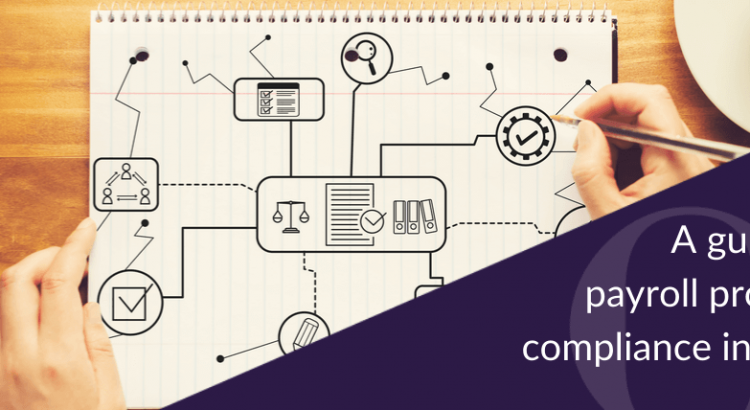Guide: The payroll process and compliance regulations in Malaysia
With Malaysia’s strategic location, market competitiveness, skilled multilingual talent pool and world-class technology capabilities, it’s easy to see why so many companies choose to establish operations there.
If your company is considering expanding into Malaysia, one of the keys to success is to understand the payroll process and compliance regulations from the outset. The last thing you want is for your newly established operation to attract the wrong kind of attention from government auditors.
That’s why we’ve prepared a helpful guide to the payroll process and compliance regulations your company needs to know when starting out in Malaysia.
Payroll process and compliance essentials in Malaysia
Before we examine some common payroll compliance challenges in Malaysia, it’s useful to understand the essentials of the payroll process and the main compliance considerations. Let’s start with a primer on the fundamentals of payroll in Malaysia.
Working conditions and wages
- Working hours: Malaysia has an eight-hour workday with an average working week of no longer than 48 hours, and (most commonly) one day off per week. Government protection provisions prevent women from working in the industrial or agricultural sectors between the hours of 10pm and 5am. Women must also have at least 11 consecutive hours off work between each shift.
- Pay cycles: salaries in Malaysia are typically paid monthly.
- Minimum wages: Nationally, the minimum wage is RM1,100, except for areas under 56 city and municipal councils where the minimum wage is RM1,200. Our team of payroll experts here at BoardRoom can advise you on the relevant government guidelines that apply to your employees.
- Overtime, rest day and holiday pay rates: Employees covered by the Employment Act 1955 (“EA 1955”) should be paid overtime at 1.5 times their hourly pay rate. Rest days are paid at two times, and public holidays at three times the hourly pay rate. However, the EA 1955 only applies to:
- employees whose monthly salary does not exceed RM2,000;
- employees within the private sector;
- employees working in Peninsular Malaysia or the Federal Territory of Labuan; and
- employees (irrespective of salary) involved in manual labour, operating or driving transport vehicles and domestic servants.
For non EA 1955 employees, employers can stipulate relevant provisions relating to overtime rates within their employment contracts.
Income tax
- Withholding tax: Malaysia has a monthly tax deduction (MTD) system requiring employers to deduct withholding tax at source. Each month, employers must then send this tax to the Inland Revenue Board (IRB) of Malaysia on behalf of their employees.
- Income tax rates: the maximum income tax rate in Malaysia is 30%, which applies to those with incomes greater than MYR 2,000,000 or ‘non-residents’. Employees who work between 60–182 days per year in Malaysia are considered ‘non-residents’, irrespective of their actual citizenship status.
- Tax clearing and tax filing: employees must complete their tax clearing and filing at year-end before April. The financial year in Malaysia runs from 1 January to 31 December.

Holidays and leave
- Paid public holidays: Employees are entitled to be paid for 11 gazetted public holidays per year. Of these 11 days, five must be:
1. Hari Kebangsaan or National Day;
2. Birthday of Yang di-Pertuan Agong;
3. Birthday of the Ruler or Yang di-Pertua Negeri or Federal Territory day (varies per state);
4. Labour Day; and
5. Malaysia Day (16 September).
The remaining six paid public holidays are chosen at the discretion of the employer from the following list and these must be communicated to employees either via written notice or as stated in their employment contracts:
- Birthday of the Prophet Muhammad (s.a.w);
- Chinese New Year (2 days, except 1 day in the states of Terengganu and Kelantan);
- Vesak Day;
- Hari Raya Puasa (2 days);
- Hari Raya Haji (1 day, except 2 days in the states of Terengganu and Kelantan);
- Deepavali;
- Christmas Day; and
- Awal Muharam.
However, the government can declare additional ad hoc, paid public holidays throughout the year. If these days are declared at short notice, employers can nominate a replacement day.
In addition, there are a number of state based holidays observed around the country. However, employers are not required to pay employees for these holidays unless they have selected them to be included in their list of paid public holidays for their employees.
- Compulsory annual leave entitlements: employees are typically entitled to between 8-16 days of paid annual leave, depending on their length of service with the company.
- Compulsory sick leave entitlements: Employees are entitled to between 14-22 days of paid sick leave, depending on their length of service with the company.
- Compulsory maternity leave entitlements: New mothers are entitled to 60 consecutive days of paid leave for each of their first five children.
- Optional leave entitlements: employees can also apply for the following optional leave types, which are typically unpaid and subject to employer approval:
- compassionate/bereavement leave;
- marriage leave; and
- study leave.
- Paternity leave: most employers also offer 1-3 days of paid paternity leave, but this is not a statutory requirement.
Social security and statutory contributions
- Employees’ Provident Fund (EPF): employers and most employees (Malaysian citizens or permanent residents only) must contribute to the EPF retirement benefits scheme. The EPF contribution rate for employees varies depending on their monthly salary, whereas the employer contribution is 12%.
- Social Security Organisation (SOCSO): employers must contribute to Malaysia’s mandatory social insurance schemes, which are administered by SOCSO. There are two schemes:
- The Employment Injury Insurance Scheme (EIIS) provides cover for employees who experience work-related injuries or diseases. The EIIS applies to all Malaysian citizens, permanent residents, and foreign workers (excluding domestic servants).
- The Invalidity Pension Schemes (IPS) provides cover for employees who experience invalidity or die from causes unrelated to their work.
Employers must make a monthly contribution to SOCSO on behalf of each eligible employee.
- Employment Insurance Scheme (EIS): employers are required to make monthly contributions for each employee. The EIS provides financial assistance to workers who have lost their job while they seek new employment.
- Human Resources Development Fund (HRDF) Levy: this is a compulsory levy paid by employers with 10 or more employees (Malaysian citizens only) working in the manufacturing, services, mining and quarrying sectors. The levy rate is 1% of each eligible employee’s monthly wage. It allows companies registered with the HRDF to receive financial assistance when they participate in specific training and upskilling programs delivered by HRDF training providers.
- Other contributions>: some employees may also be required to make student loan repayments to the National Higher Education Fund Corporation, or make donations known as Zakat to fulfil their religious obligations.

Common payroll compliance issues to be aware of in Malaysia
Payroll errors can result in your company needing to pay expensive fines. They can also cause reputational damage and employee dissatisfaction. To help you avoid unpleasant situations, here are some common payroll compliance issues to be aware of in Malaysia:
- Late MTD payments: the Inland Revenue Board (IRB) imposes penalties if employers fail to pay monthly employee income tax withholdings by the 15th of each month.
- Failing to include perquisites, benefits-in-kind or equity incentives in compensation reporting: sometimes these benefits are not paid through payroll, which means they can be easily overlooked in compensation reporting.
- Incorrect classification of employees: Foreign workers, non-residents and secondees are often classified incorrectly during payroll data system entry. As a result, your company might underpay these employees and deduct the wrong income tax amounts.
- Failing to stay up-to-date with regulation changes impacting payroll: In Malaysia, there are four regulatory bodies that influence payroll processing rules which makes it more of a challenge staying up-to-date with payroll requirements.
- Overlooking cultural norms: It’s common in Malaysian payroll processing to include ‘13th-month pay’ – a single annual payment on top of an employee’s total annual wage. This payment isn’t mandatory and would not be considered non-compliance if you did not adhere to it, but it is the cultural norm that could impact employee satisfaction.

Want expert help in processing your company’s payroll in Malaysia?
Our team of payroll experts can guide you through the complexities of the payroll process in Malaysia to help make your business expansion more successful. We can set up your company’s payroll so that you get it right the first time, every time.
It doesn’t matter whether you are a large multinational corporation or a fast-growing SME. Outsourcing to an international payroll processing company like BoardRoom ensures your company has an efficient, accurate and compliant payroll process right from the start.
Speak to our team of payroll specialists in Malaysia today about how outsourcing payroll can give you more time to focus on what really matters: your company’s growth and profitability.







